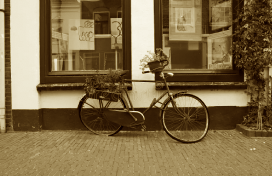Business of Cannabis has the details. Let’s just say it’s not your usual Dutch efficiency!
Despite the experiment expanding to the full 10 municipalities on June 17, 2024, a number of licensed producers are still months away from being up and running.
Furthermore, following the swearing in of a new right-wing government earlier this month, some doubts have been raised as to whether the experiment will be a precursor to full legalisation.
Transitional phase
The initial stages of the experiment began in December last year, with two out of the total 10 municipalities (Breda & Tilburg) beginning sales of legally grown cannabis for the first time.
Three of the 10 licensed cultivators, FYTA Group, Aardachtig, and CanAdelaar were the first to begin supplying product to the coffee shops in these two locations.
However, with the expansion to eight further locations, totaling around 80 coffeeshops, the demand has increased significantly, and it could be months before the rest of the cultivators are ready to begin providing cannabis to these coffee shops.
The experiment, which has been in the works for since 2017, has seen repeated setbacks and delays due to the lack of a readily available supply of legally grown cannabis.
While the 10 licenced growers were officially named at the end of 2020, they have faced numerous hurdles, such as obtaining building permits, finding and retaining investors, and opening bank accounts.
As a solution to the repeated delays, the government opted to allow a ‘transition phase’, in which the coffee shops could continue to sell the black-market-sourced cannabis alongside the new legitimately grown products, until enough legal product was ready to make the transition.
This transitional phase is scheduled to end of September 16, but the government has signalled that it could be pushed back if growers are still not able to supply enough product to meet demand.
Read the full article




















